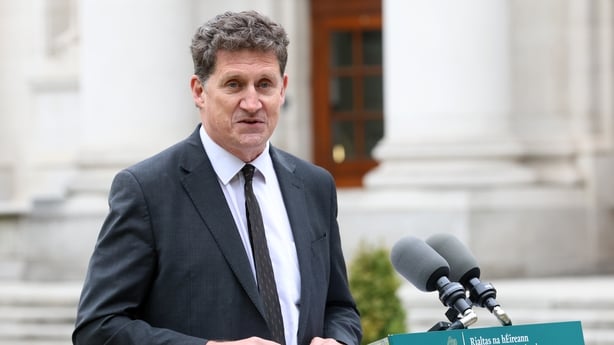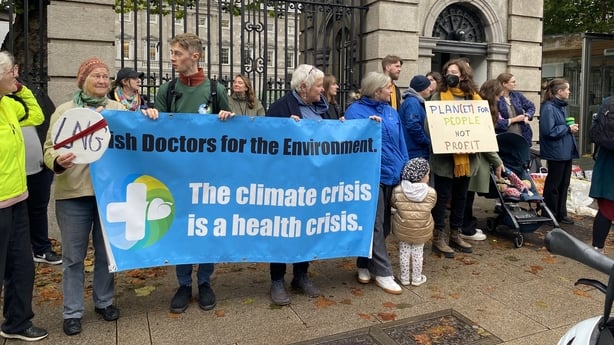Four years ago, Hulk actor Mark Ruffalo was enlisted by the Green Party to round up support of members for going into government with Fianna Fáil and Fine Gael.
The Hollywood star has campaigned against fracking in the United States for a decade and was happy to share a webinar platform with then party leader Eamon Ryan.
The Greens had said in their 2020 manifesto that the party would "stand firmly against" fracked gas in Ireland.
Fast forward to this week and Mr Ruffalo weighed in again - but this time to attack the Greens.
He said the party was about to do something "something terrible" by allowing strategic gas storage in legislation.
His intervention came hours before TDs voted to approve the Planning and Development Bill, on Wednesday.
The legislation allows for a floating liquefied natural gas (LNG) storage facility.
The Government says it won't be used to store fracked gas, a highly controversial method of extraction which has damaging environmental consequences.

Allowing floating LNG in legislation follows a major report, published last year by Minister for Energy Eamon Ryan, which highlighted a massive vulnerability for Ireland’s energy supplies.
Unlike many other EU countries, Ireland has no gas storage facilities and is highly exposed as a result.
In 2022 three-quarters of Ireland’s supplies came through two interconnectors to Britain.
Following attacks on the Nord Stream pipeline off the Danish coast in 2022 the question of security of pipelines has become a top priority for European governments.
Last year’s Energy Security in Ireland report said if one of Ireland’s two undersea connectors was disabled for any reason, it would result in 35% of the country’s gas demands being unmet and warned of economic and social consequences.
It recommended floating gas reserve and said it was "a solution preferred by a range of EU member states".
So, there was little surprise that this week’s legislation contained a provision for that.
The issue of gas storage will likely become more important over the next five years as Ireland’s domestic supplies run out leaving the country almost entirely reliant on UK imports.
Although there has been a surge in renewables, Ireland still relies heavily on gas when wind and solar are not producing power.

So despite the protests outside the Dáil and Mark Ruffalo’s intervention, Green TDs voted for the legislation.
A spokesman for the party said any gas storage facility would be State-controlled, although the new law is not specific about ownership.
The issue for environmental groups, including Friends of the Earth, is not so much the new legislation, but a judgement issued by the High Court to overturn the planning refusal by An Bord Pleanála for a commercial LNG storage facility on the Shannon in Kerry.
This highly controversial proposal is by New Fortress, a US company. It is for a power plant, battery energy storage and re-gasification unit on a 630-acre site between Tarbert and Ballylongford.
The company has not identified the source of the gas it would store in the Irish facility, but it is already involved in the export of gas from the US most of which is fracked.
The company said in its planning application that it was "confident it could source gas from non-fracked sources" to meet energy demand.
The decision by the High Court means the planning application is likely to become live again.
An Bord Pleanála’s decision was based on the Government’s policy of a ban on fracked gas.
Environmental groups fear the law passed this week could now allow the proposal for the Shannon, which they have been campaigning against for years, to proceed.
Friends of the Earth said the change in the law and High Court decision mean that "together this is a stark contradiction of Government policy that Ireland should not allow commercial LNG."
The question now is whether the Coalition, by allowing for a facility to back up increasingly vulnerable gas supplies, may have unintentionally opened the door to something else.
Opposition to commercial LNG was a cornerstone of the Greens joining the Government benches as recently as 2020.








